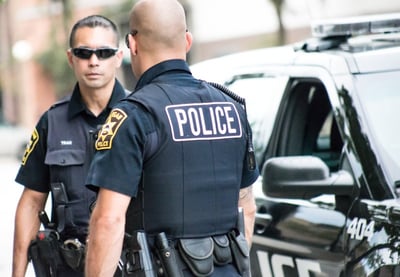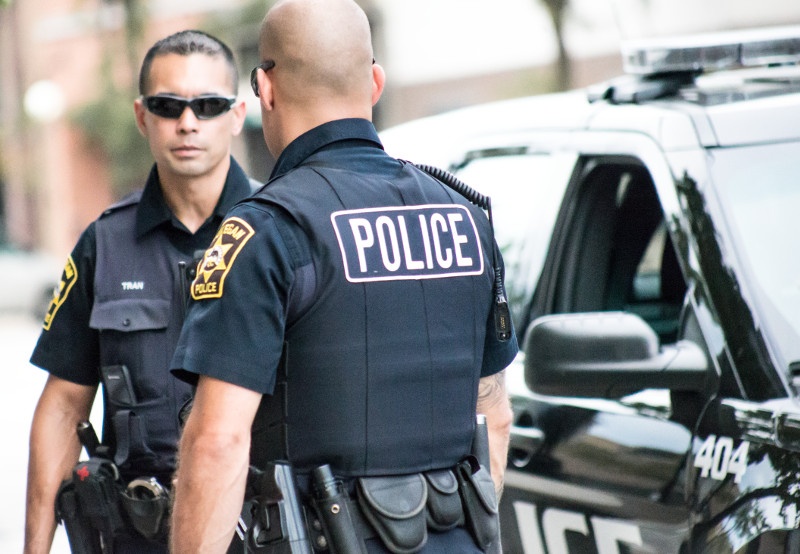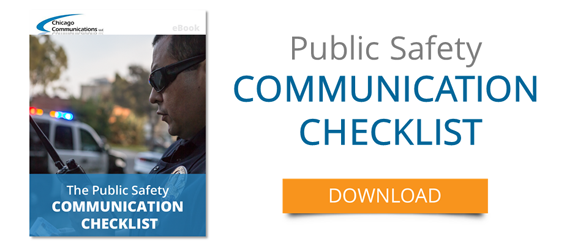I can't tell you how many times I’ve heard from a customer, "My police radio system sounds bad," only to find that their radios are not set up correctly.
correctly.
Not having the right setup and/or not using two-way radios properly will lead to all kinds of performance issues, even if you have the latest emergency communications equipment. This can impact everything from routine conversations to emergency communications and disaster response. Before you call to have your radios or systems serviced, it’s worth the time to try a few troubleshooting tips first.
The simplicity of the solutions here may surprise you, so keep reading for my answer to why your police radio system sounds so bad. Hint: It’s probably not the radio.
Common Public Safety Radio Problems
A number of years ago I tried an experiment: I programmed a Motorola APX7000 radio to a local public safety channel to monitor the audio. In just two days of listening, I diagnosed the following problems with their systems:
- Several microphone cords were bad. Every time the officer moved, it sounded very scratchy.
- A couple of the radios appeared to be narrowbanded even though the system is wideband. The audio from these units was so low I could barely make them out.
- The unit identifier for the individual portable was set up for Kenwood Fleetsync even though it was a Motorola MDC-type system. Many public safety agencies use a unit ID to tell which radio is keyed up. Unless they all use the same identifier, it won’t work correctly. Whatever emergency equipment dealer they bought the units from put in an incorrect protocol, and it sounded like a telephone ringing every time the unit keyed up.
- An officer likely had the radio pinned to his shoulder strap because when he talked, his volume was very soft and then increased to a normal level.
These were issues I was able to identify without even being on the premises with these officers, based on serving public safety departments over many years. As you can see, diminished communications quality is often a matter of maintaining and correctly configuring the equipment you have. But the issues have to be accurately identified first.
Troubleshooting Tips
Our shop attempts to set system audio levels evenly so that dispatch sounds the same as a portable or mobile in the field. When it doesn’t, something is wrong.
Here are some simple steps to help minimize or identify a problem with your police radio system:
- A basic parameter for emergency radio systems is that a unit’s microphone should be held approximately two inches from your mouth. Not on the chest, not on the shoulder, and not on the belt.
- All people vary in audio level when talking. Make sure that the speech you are producing is at a good comfortable level for you.
- If someone tells you that you sound scratchy, wiggle the microphone cord around when transmitting to see if that may be the issue (if so equipped). Take the microphone off of the radio and try transmitting without it to see if dispatch or other units hear you better.
- Change the battery! Batteries vary in lifecycles. Some last 12 months, some several years. It all depends on how the radios have been used. When you pull a battery from a charger, initially you're going to get full power from the unit. Halfway through your shift, if someone tells you you're scratchy, the power on the battery may be at half charge.
- If you have different people in a particular geographic area, and they all appear to have issues there, there may be a system problem.
- If you're going to buy an off-brand radio from the internet or a shop that is not factory trained, make sure that the radio meets the manufacturer’s specifications. I have seen people purchase a radio because it's smaller in size instead of based on whether it’s right for the system.
- Remember: With radio systems, one or two radios sounding bad may be an issue with the units. Many radios sounding bad is more likely a system issue.
Ask These Three Things
When you’re bringing radios in for service, the more information you have about the problems you’re experiencing, the better. Statements such as “It's bad all over” are hard to troubleshoot, even for the most experienced technicians.
There are three things that we usually try to find out when assessing a problem:
- Can dispatch hear the units in the field?
- Can the units in the field hear dispatch?
- Can the units in the field hear each other?
Those three questions are a great way to start addressing the problem. They tell us where to start assessing the issues you're having. Any additional information supplements these three points.



